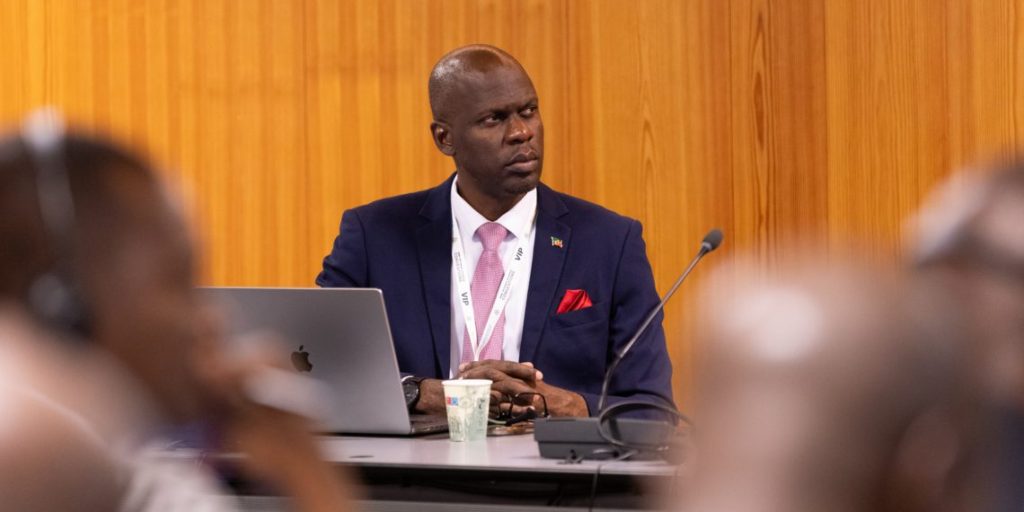Saint Kitts and Nevis Advocates for Equity, Action, and Innovation at Geneva’s BRS Ministerial Forum
Saint Kitts and Nevis, a small island developing state, has issued a compelling call to action for global solidarity and support in addressing the pressing environmental challenges facing vulnerable nations. Dr. Marcus L. Natta, Cabinet Secretary of Saint Kitts and Nevis, delivered this urgent message at a high-level ministerial forum during the 2025 Meetings of the Conferences of the Parties (COP) to the Basel, Rotterdam, and Stockholm (BRS) Conventions in Geneva, Switzerland. He emphasized the disproportionate impact of environmental crises on small island nations and urged for a shift from theoretical discussions to tangible actions, including improved access to financial resources, technological solutions, and strengthened partnerships.
Dr. Natta highlighted the interconnectedness of biodiversity loss, plastic pollution, and climate change, emphasizing their combined threat to food security, public health, and national stability. He argued that outdated metrics, such as the World Bank’s “high-income” classification, fail to capture the unique vulnerabilities of small island developing states (SIDS) like Saint Kitts and Nevis. These classifications often hinder access to concessional financing, crucial for implementing environmental projects and building resilience. He called for the modernization of these financial metrics to reflect the real-world challenges faced by SIDS and to ensure equitable access to crucial funding.
Saint Kitts and Nevis is actively pursuing innovative financing mechanisms, including green and sustainability-linked bonds, to support critical projects like waste management systems and recycling programs. Dr. Natta stressed the importance of capacity building through skills development, technology transfer, and collaborative partnerships between government bodies, businesses, and non-profit organizations. He cited successful regional workshops on climate resilience and the upcoming 3rd Global Sustainable Island Summit (GSIS3), to be hosted by Saint Kitts and Nevis in May 2025, as examples of the power of knowledge-sharing and collaborative action.
The call to action extended to the private sector, urging increased investment in clean technologies and the development of innovative solutions, such as converting organic waste to energy. Dr. Natta also emphasized the importance of enforcing producer responsibility for product waste to minimize pollution and foster a circular economy. He underscored that these measures are not just environmentally sound but also crucial for creating a sustainable future that benefits all.
Dr. Natta concluded his address with a powerful plea for binding commitments from the global community. He urged for a shift from rhetoric to action, focusing on three key areas: modernizing financing metrics to better reflect the vulnerabilities of SIDS, enforcing producer accountability for waste management, and amplifying the voices of SIDS in global environmental discussions. He positioned Saint Kitts and Nevis as a leader in these efforts and urged other nations to join the cause.
The BRS Conventions provide a crucial platform for global collaboration in addressing the increasing dangers of hazardous chemicals and waste. Saint Kitts and Nevis plays a vital role in these international initiatives, advocating for the unique needs of vulnerable countries and championing a more sustainable future for all. This call to action serves as a reminder of the urgent need for global solidarity and tangible action to address the interconnected environmental challenges facing our planet, particularly the disproportionate impact on small island developing states. The message is clear: move from discussion to action, embrace innovation, and foster partnerships to build a more resilient and sustainable future for generations to come.
Share this content:












Post Comment